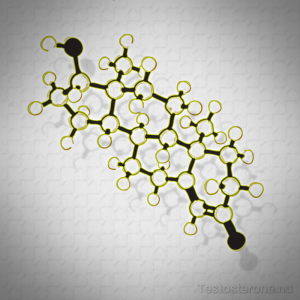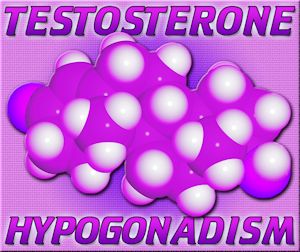
What is Testosterone?
Testosterone is a steroid hormone that exists in many animals and also in humans. This hormone is generally produced in the testes of the male, and the ovaries of the female. The adrenal glands also produce a small amount of testosterone as well.
Testosterone Replacement Treatment (TRT)
There are various treatments for treating Testosterone like oral medications (seldom used), injections (the most common TRT), and cream or gels (the second most common form of TRT). Any individual who is suffering from Testosterone also needs to doubly understand the side effects and benefits that are caused by these treatments.
While both men and women can be affected by Testosterone replenishment therapy, there are several factors, which can be considered before going ahead with the treatment of the same.
If the female or the male patient has breast cancer or prostate cancer, then it is not a good fit for the individual to go in for a Testosterone therapy regimen. Consulting a medical practitioner for a counseling session before the treatment will be helpful to understand more about the treatment effects and the proper care which needs to be taken by the patient.
 If the patient has cancer, some studies suggest the treatment can make the cancer cells grow faster, and this can also be risky to the patient's life. Though testosterone in and of itself does not cause cancer.
If the patient has cancer, some studies suggest the treatment can make the cancer cells grow faster, and this can also be risky to the patient's life. Though testosterone in and of itself does not cause cancer.
Hence, the patient needs to know the various side effects which are caused by the treatments of testosterone. Some studies have shown that testosterone can increase cardiovascular health risks, while other studies have shown that 1/3rd of men with low testosterone get heart attacks and strokes. So too much or too little testosterone can potentially be bad for your health.
There are also various other side effects that are to be known.
Side effects of Testosterone treatment:
Edema (water retention or swelling)
Fluid retention is a common side effect in the early stages of medical Testosterone therapy. This occurs in men and most commonly with the older men than the younger ones. Fluid retention can also cause ankle and leg swelling in older men.
Injection Site Irritation
If using injectable testosterone some patients can get irritation, flushing, or bruising at the injection site. This can sometimes occur when one first starts treatment but is thought to be less common later on as the body adjusts and adapts to ongoing HRT protocols.
In other words, it is more often a common issue in new patients, than experienced or seasoned patients.
Potential Risk of Higher Blood Pressure
TRT can cause an increase in blood pressure. This is thought by some physicians to be a short-term side effect in many of the cases. But it is something which the patient should consider self-monitoring. There are a number of affordable self-use blood pressure devices sold OTC online.
Liver Toxicity
If the patient is under oral treatment of Testosterone, there can also be risks or signs of liver toxicity, which is why injections and cream are more often prescribed and thought to be safer than pills.
It is strongly believed there are no such liver toxicity side effects if the patient is undergoing treatment of transdermal Testosterone replacement (cream or gel). Even the drug manufacturer also mentions possible liver problems when using oral medications.
Hence, such medicines are not to be taken without a physician’s advice and a second opinion is always recommended.
Fertility: Too much or too little Testosterone can affect fertility
 Fertility problems can also arise when undergoing therapy.
Fertility problems can also arise when undergoing therapy.
It is believed when testosterone is too high (abuse) or too low (low-t or low testosterone) there can be risks associated with one's fertility.
This is most common in men as sperm production is majorly dependent on the Testosterone production by the testes.
Men who are trying to inseminate and conceive should check their sperm count if success is not being achieved after 6 to 9 months.
If external Testosterone (injections, cream, gel) is used in the body for low testosterone treatment, then there is the risk production of testosterone decreases by the testes, thus causing fertility problems like low sperm count, etc. Excessive usage of the medication can also lead to a complete shutdown of sperm production.
Younger men who are undergoing this treatment should consider this and look out for any other alternative method for the procedure. Taking extreme care when starting any therapy for Testosterone is extremely helpful for the patient.
Sleep Apnea
Another majorly seen side effect, which occurs in the treatment of Testosterone, is Sleep apnea. This is a condition where the patient pauses to breathe for short periods when asleep.
This can worsen the medical condition of the individual and can also lead to other complications.
If the Testosterone count increases in the body too high, the possibility of sleep apnea also increases, and there are also studies that show that these symptoms are less common in older men.
Gynocomastia: Manboobs
Enlargement of breasts can also be seen in men abusing Testosterone. This happens due to the conversion of Testosterone to estrogen during the treatment. Individuals can also experience tender breasts due to the same reason.
This side effect can be overcome by decreasing the dosage of Testosterone. To mitigate this issue, when using testosterone, one should use an "estrogen blocker" which is slang for an aromatase inhibitor.
When you inhibit the conversion of testosterone into estrogen, you can experience the full benefits of testosterone without some of the deleterious side effects.
Red Blood Cell Count Increase: Oxygen Carriers
The patients can also suffer from Polycythemia. This is the symptom where there is an increase in red blood cell concentration. This is one of the most influential and commonly seen side effects in patients undergoing treatment for Testosterone.
Blood Draws Can Mitigate High Red Blood Cell Count
There is also an increase in hemoglobin levels and shows up in older men. The symptom of Polycythemia can also cause heart-related complications like heart attacks, strokes, or even cl0tting in the veins.
The dosage can be decreased, or the patient can also donate the blood so that the blood cell mass decreases to avoid any severe heart complications.
Prostate
There is conflicting research on how high testosterone affects the prostate gland. In some studies is thought to increase the size of the prostate, and this can obviously hurt men in many ways.
The prostate can also increase in size and depending, is medically known as benign prostatic hyperplasia and, this causes problems with urination. Some studies suggest Testosterone does not cause prostate cancer or prostate swelling.
Cancer
If the person is suffering from any cancerous disease, then it is believed some HRT programs can increase the growth of these cells. Prostate cancer is widely known to be the second most common cause of cancer deaths in older men.
 In most of the above side effects, the Testosterone levels can be decreased to treat the complications which arise during the treatment.
In most of the above side effects, the Testosterone levels can be decreased to treat the complications which arise during the treatment.
If side effects persist, one should stop therapy. One should only engage in Testosterone therapies, which aim for optimization, not excess. People with a history of any of the above medical issues should think twice before starting any kind of program and should seek second and third opinions from a multitude of doctors.
Conflicting studies
Numerous studies do show that there has been no increase in the prostate size or change of urine flow rates, regarding testosterone patients.
Some of the recent studies also show conflicting results stating that Testosterone is crucial in maintaining the cardiovascular health of an individual.
Some of the parameters which are known to improve most visibly with testosterone and regular exercise are improvements in lean body mass, decreases in visceral fat mass around the core and midsection, decreases in total cholesterol, and also more balance over the glycemic levels. But results vary.
Higher than average Testosterone is good for health?
If one's Testosterone levels are slightly more than average, some studies suggest they are less prone to symptoms like high blood pressure, heart attack and are also extremely less affected by obesity.
The change in Testosterone levels is known to affect brain function, which mostly occurs due to sexual differentiation, and this differs in men and women. Men on Testosterone protocols commonly report more motivation and zest for life, than when they were deficient.
Testosterone treatment always needs to be conducted with the supervision of the physician and blood testing should be regular every number of months. Proper medication protocols need to be taken depending on the existing health condition of the patient to avoid any further risk.
Thus all the factors above should be considered. The FDA also reported in recent years that they strongly believe there was evidence TRT can increase the risk of cardiovascular disease.
Reference
Review of health risks of low testosterone and testosterone administration
Contact Us Today For A Free Consultation

- Testosterone for Women [Last Updated On: December 1st, 2023] [Originally Added On: December 29th, 2013]
- Testosterone Androgen [Last Updated On: December 11th, 2023] [Originally Added On: December 29th, 2013]
- Testosterone and Body Building [Last Updated On: December 14th, 2023] [Originally Added On: December 30th, 2013]
- Testosterone Levels [Last Updated On: December 6th, 2023] [Originally Added On: December 31st, 2013]
- Testosterone Gel, Cream, and the Testosterone Patch [Last Updated On: November 28th, 2023] [Originally Added On: December 31st, 2013]
- Buy Testosterone | Types of Testosterone Replacement Therapy Programs, Injections, Cream and Gel [Last Updated On: December 13th, 2023] [Originally Added On: December 31st, 2013]
- Buy Testosterone Injections Online, Testosterone Prescription for Low T, Testosterone Replacement Therapy [Last Updated On: October 16th, 2020] [Originally Added On: January 1st, 2014]
- Aging and Testosterone Replacement Therapy [Last Updated On: December 12th, 2023] [Originally Added On: January 3rd, 2014]
- What Causes Low Testosterone [Last Updated On: December 10th, 2023] [Originally Added On: January 7th, 2014]
- Hormone Levels in Men [Last Updated On: December 4th, 2023] [Originally Added On: January 12th, 2014]
- Hormone Level Testing [Last Updated On: November 29th, 2023] [Originally Added On: January 13th, 2014]
- Types of Testosterone Products and Delivery [Last Updated On: December 8th, 2023] [Originally Added On: January 22nd, 2014]
- Testosterone Therapy Helps Men with Low-T Ward Off Prostate Cancer [Last Updated On: May 29th, 2024] [Originally Added On: December 29th, 2019]
- The Importance of Dietary Fat for Testosterone Production [Last Updated On: November 27th, 2021] [Originally Added On: January 2nd, 2020]
- Testosterone Deficiency and Low-T at Epidemic Levels Among Men in the United States [Last Updated On: May 27th, 2024] [Originally Added On: May 17th, 2020]
- The Effects of Testosterone Therapy on Male Patients -- Who Should Use Testosterone? [Last Updated On: December 20th, 2023] [Originally Added On: June 16th, 2020]
- Does Ibuprofen Contribute to Low Testosterone? [Last Updated On: January 27th, 2024] [Originally Added On: June 20th, 2020]
- The Link Between Testosterone and Lower Rates of Autoimmune Diseases Among Men [Last Updated On: January 30th, 2024] [Originally Added On: June 21st, 2020]
- Weight Cycling and the Problem with Crash Dieting [Last Updated On: April 8th, 2024] [Originally Added On: July 30th, 2020]
- Reexamining Bio-Identical Testosterone Therapy [Last Updated On: November 21st, 2021] [Originally Added On: August 12th, 2020]
- Understanding how Muscle and Fat Impact Body Mass, Weight, and Health [Last Updated On: April 15th, 2024] [Originally Added On: August 25th, 2020]
- The Role of Nitric Oxide in Cancer Proliferation And Prevention [Last Updated On: May 3rd, 2024] [Originally Added On: August 26th, 2020]
- Understanding Heartburn in the 21st Century [Last Updated On: April 24th, 2024] [Originally Added On: August 28th, 2020]
- What is Erectile Dysfunction? [Last Updated On: April 20th, 2024] [Originally Added On: August 30th, 2020]
- Sermorelin Acetate Drug Information [Last Updated On: April 7th, 2024] [Originally Added On: August 31st, 2020]
- Exercise and Mental Health [Last Updated On: April 5th, 2024] [Originally Added On: September 1st, 2020]
- The Importance of Proteins, Carbs, and Fats [Last Updated On: March 11th, 2024] [Originally Added On: September 2nd, 2020]
- Low-T Treatment Before and After -- How Testosterone Therapy Improves Vitality [Last Updated On: April 9th, 2024] [Originally Added On: September 6th, 2020]
- Changes to LabCorp Guidelines for Low-T Diagnosis and How They Impact Your Treatment [Last Updated On: November 28th, 2021] [Originally Added On: September 22nd, 2020]
- The Effects of Testosterone on Asthma Prevalence Among Men and Women [Last Updated On: February 19th, 2024] [Originally Added On: October 6th, 2020]
- 7 Exercises to Elevate Testosterone Levels [Last Updated On: November 20th, 2021] [Originally Added On: October 10th, 2020]
- Vitamin A is Essential for Good Health - Are You Getting Enough ? [Last Updated On: April 16th, 2024] [Originally Added On: October 14th, 2020]
- Testosterone and Diet – How to Support Testosterone Levels with Healthy Eating [Last Updated On: June 7th, 2024] [Originally Added On: October 29th, 2020]
- The Significance of Telomeres in Stem Cell Treatments [Last Updated On: March 16th, 2024] [Originally Added On: November 27th, 2020]
- The Influence of Testosterone on Protective Mating Behaviors in Men [Last Updated On: January 25th, 2024] [Originally Added On: December 6th, 2020]
- The Role of Testosterone in Women's Health [Last Updated On: December 24th, 2023] [Originally Added On: December 7th, 2020]
- Testosterone Promotes Bone Health and Can Help Treat Osteoporosis [Last Updated On: February 15th, 2024] [Originally Added On: December 17th, 2020]
- The Relationship Between Testosterone and Cortisol [Last Updated On: April 2nd, 2024] [Originally Added On: December 19th, 2020]
- The Importance of Sex Hormone-Binding Globulin (SHBG) for Healthy Testosterone Levels [Last Updated On: March 9th, 2024] [Originally Added On: December 28th, 2020]
- 12 Health Issues That Can Kill Libido and Limit Sexual Performance [Last Updated On: May 23rd, 2024] [Originally Added On: January 3rd, 2021]
- 4 Foods to Boost Your Testosterone Levels [Last Updated On: February 7th, 2024] [Originally Added On: January 4th, 2021]
- Low Testosterone Symptoms [Last Updated On: December 31st, 2023] [Originally Added On: January 7th, 2021]
- Is Male Menopause Real? The Science of Andropause [Last Updated On: January 15th, 2024] [Originally Added On: January 11th, 2021]
- Relieve Fatigue and Increase Energy with Testosterone Replacement Therapy [Last Updated On: January 16th, 2024] [Originally Added On: January 16th, 2021]
- How to Administer a Testosterone Injection -- Low-T Injection Guide [Last Updated On: February 28th, 2024] [Originally Added On: January 17th, 2021]
- Testosterone Levels Associated with Serotonin Activity in the Brain [Last Updated On: March 26th, 2024] [Originally Added On: January 19th, 2021]
- Grumpy Old Man Syndrome – Causes and Treatments [Last Updated On: June 8th, 2024] [Originally Added On: January 22nd, 2021]
- The Effects of Beer on Testosterone Production and Gynecomastia [Last Updated On: March 21st, 2024] [Originally Added On: January 30th, 2021]
- Testosterone Frequently Asked Questions [Last Updated On: February 6th, 2024] [Originally Added On: February 26th, 2021]
- Testosterone Supplements: Vitamin and Amino Acid Pills Versus Real Testosterone [Last Updated On: September 14th, 2023] [Originally Added On: March 1st, 2021]
- Testosterone for Men [Last Updated On: February 20th, 2024] [Originally Added On: April 13th, 2021]
- Testosterone Testing [Last Updated On: August 25th, 2023] [Originally Added On: May 7th, 2021]
- Hormone Replacement Therapy: Commonly Asked Questions [Last Updated On: February 20th, 2024] [Originally Added On: June 16th, 2023]
Word Count: 1479





















